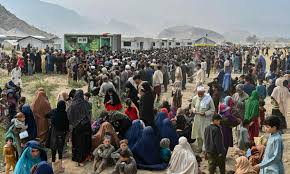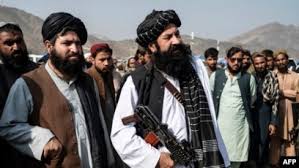1. Background of the Afghan Refugee Crisis in Pakistan
For decades, Pakistan has been home to millions of Afghan refugees, many of whom fled their homeland due to wars, conflicts, and political instability. The Soviet-Afghan War (1979-1989), the U.S. invasion of Afghanistan (2001-2021), and the Taliban's resurgence in 2021 have contributed to successive waves of displacement.
According to the United Nations High Commissioner for Refugees (UNHCR), over 1.3 million registered Afghan refugees currently reside in Pakistan, with an estimated 800,000 more undocumented Afghans. Many refugees have lived in the country for generations, integrating into local communities, businesses, and educational institutions.
However, as Pakistan faces economic challenges and security concerns, its stance on Afghan refugees has hardened. Authorities have ramped up deportations, detentions, and border security measures, sparking concerns among human rights organizations and Afghan officials.

2. Pakistan’s Recent Crackdown on Afghan Refugees
In recent months, Pakistan has launched a nationwide crackdown on illegal immigrants, with Afghan refugees being the primary target. The government has cited national security concerns, economic strain, and increased crime rates as reasons for the expulsion.
Key developments in the crackdown include:
- Strict Deadlines: The Pakistani government imposed an ultimatum for undocumented refugees to leave voluntarily or face forced deportation.
- Mass Arrests: Law enforcement agencies have detained thousands of Afghans, including families, women, and children.
- Border Restrictions: Increased patrols and tightened border controls at the Afghanistan-Pakistan border have made re-entry difficult.
- Confiscation of Property: Reports indicate that some Afghan refugees' businesses and homes have been seized, leaving them homeless.
Pakistan argues that terrorist elements and illegal activities have increased due to unregulated Afghan migration, leading to a national security threat. However, critics argue that the sweeping deportations lack due process and violate humanitarian rights.

3. Humanitarian Concerns and International Reactions
The large-scale deportation of Afghan refugees has drawn global criticism from human rights organizations, the United Nations, and the Afghan government. Key concerns include:
- Forced Displacement: Many refugees face severe risks if returned to Afghanistan, where economic hardship, unemployment, and security threats remain high.
- Human Rights Violations: Reports suggest that detained Afghans have faced mistreatment, lack of legal representation, and forced removals without due process.
- Strain on Afghanistan: Afghanistan’s fragile economy and governance issues make it difficult to accommodate returning refugees.
The United Nations and humanitarian agencies have urged Pakistan to halt forced deportations and find diplomatic solutions. The European Union, Amnesty International, and the U.S. State Department have also expressed concerns, warning of a looming humanitarian crisis.
Afghanistan’s Taliban-led government has called for a negotiated resolution, stating that the expulsion of Afghans worsens regional instability.
4. Impact on Afghan Refugees and Their Future
The expulsion of Afghan refugees will have long-term consequences on their lives and livelihoods. Challenges they may face include:
- Lack of Employment & Shelter: Many refugees have no homes, jobs, or support systems in Afghanistan, making reintegration difficult.
- Security Risks: With ongoing terror threats and political instability, deported refugees may become targets of violence.
- Separation of Families: Some families are being forcibly separated, as Pakistani-born Afghan children are also being deported despite having never lived in Afghanistan.
Several humanitarian organizations have called for international aid to assist deported refugees, but resources remain limited. Many Afghans fear that returning home will lead to persecution, poverty, or displacement once again.
5. Diplomatic Relations Between Pakistan and Afghanistan
The refugee crisis has further strained Pakistan-Afghanistan relations, which have already been tense due to:
- Border Disputes: Clashes along the Durand Line continue to cause friction between both nations.
- Terrorism Concerns: Pakistan accuses Afghan-based militants of launching attacks inside its borders.
- Economic & Trade Issues: Diplomatic disagreements have impacted trade routes, business investments, and cross-border commerce.
Despite tensions, both nations recognize the need for dialogue to resolve the refugee crisis. Afghanistan’s interim Taliban government has urged Pakistan to halt mass deportations, while Pakistan insists on stricter border control and regulation of Afghan migration.
Experts suggest that regional cooperation and international mediation may be required to find a sustainable solution to the crisis.



You must be logged in to post a comment.